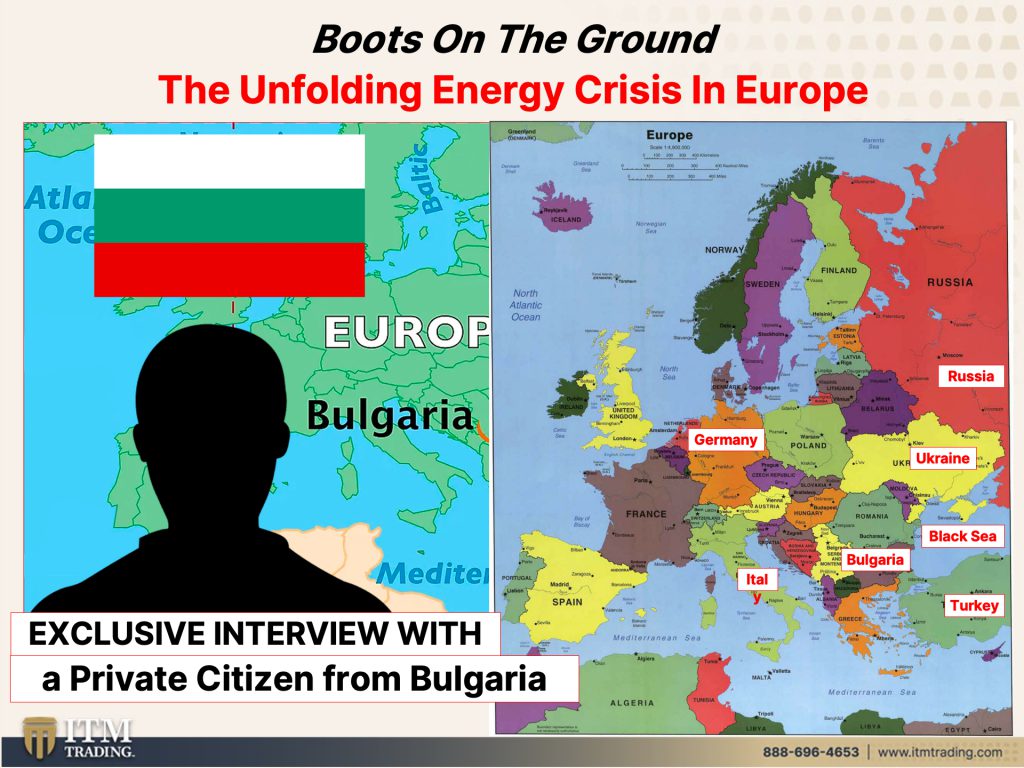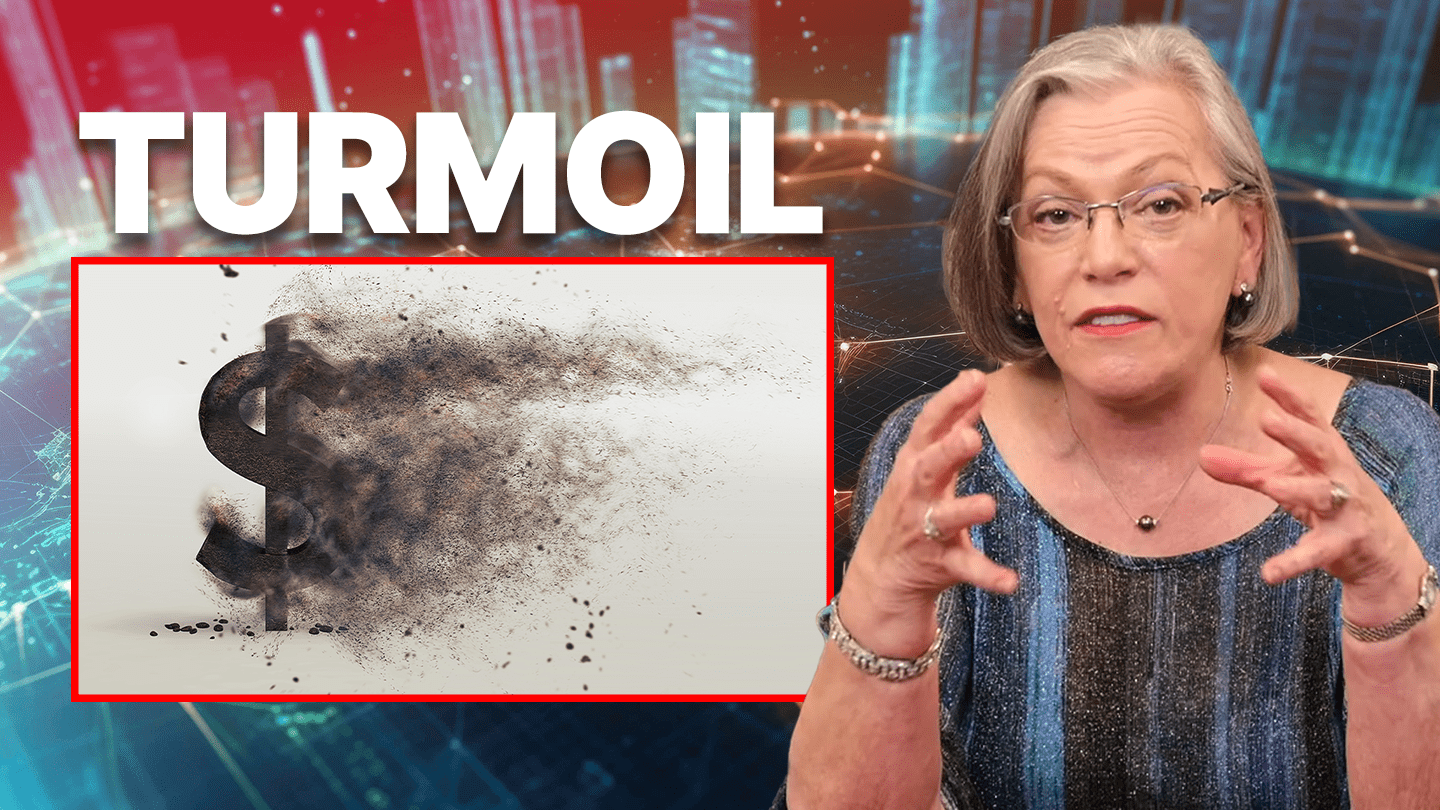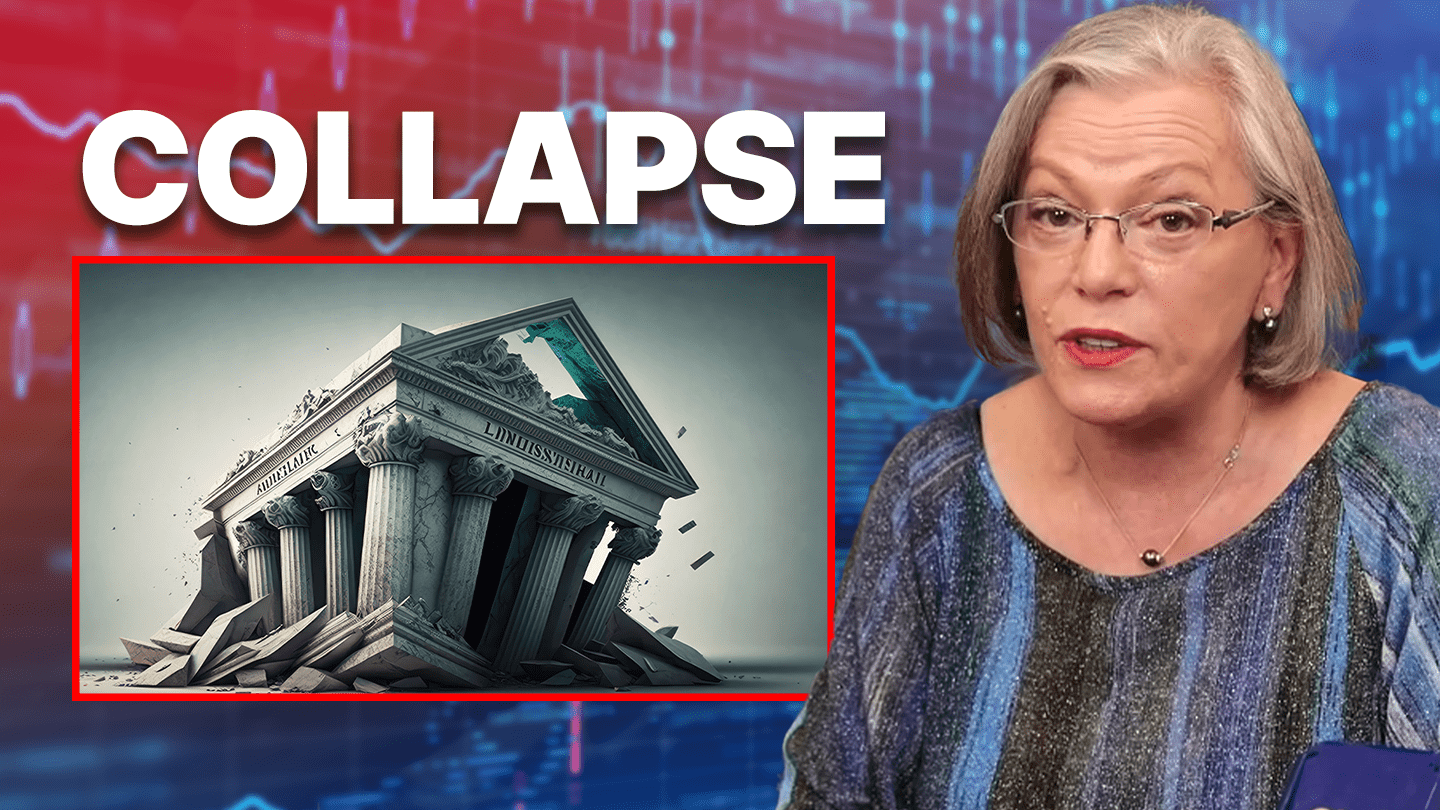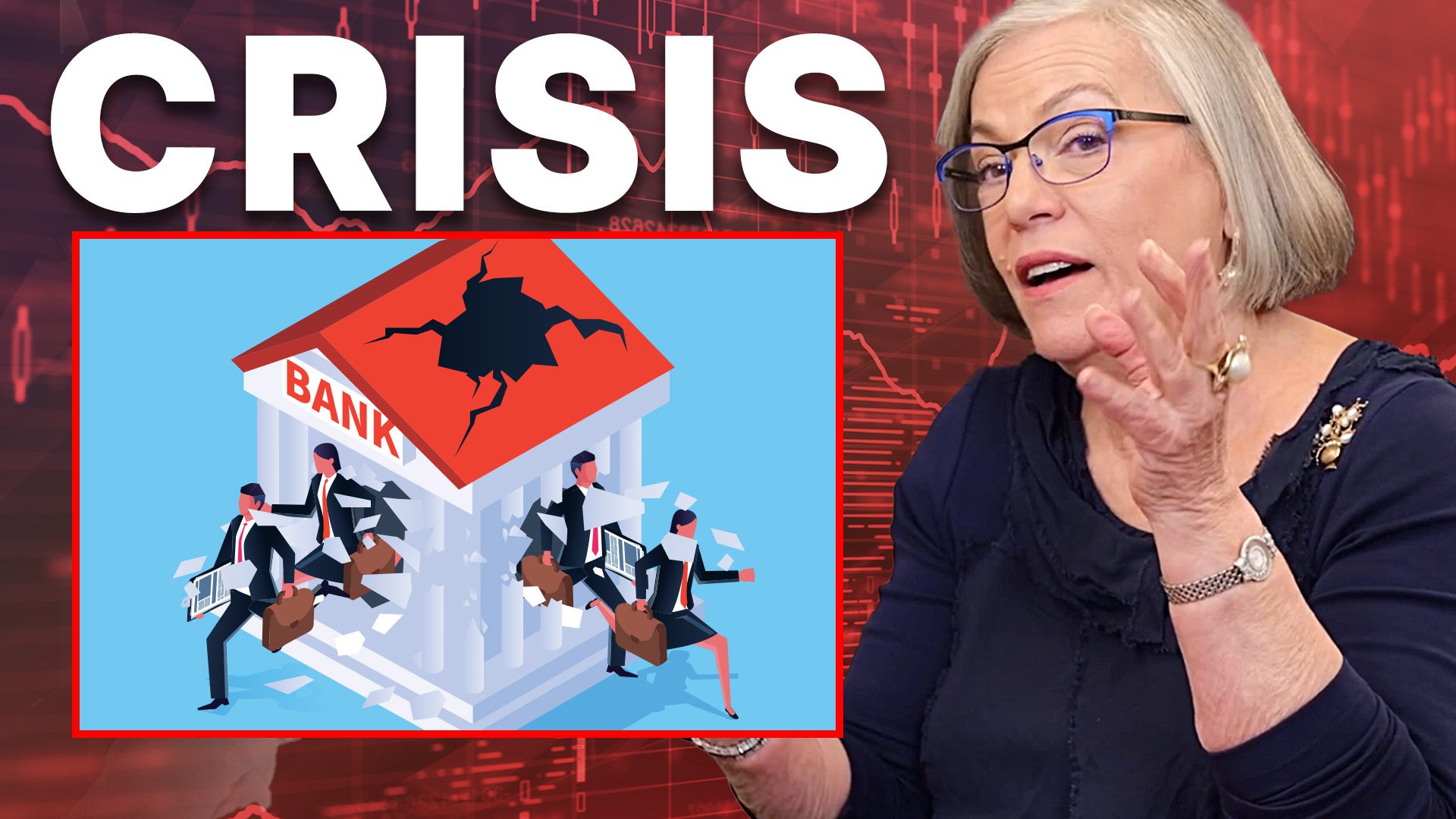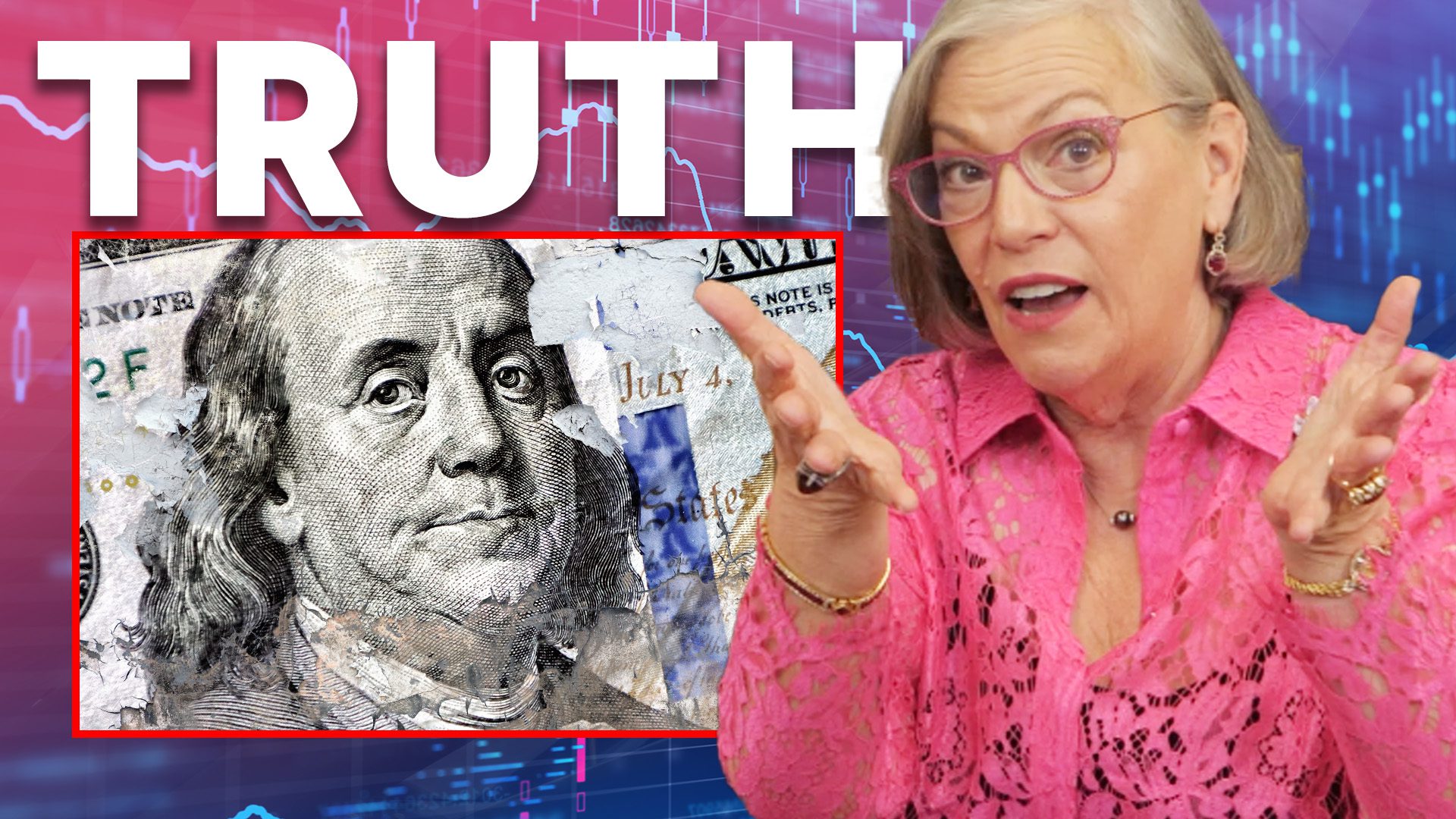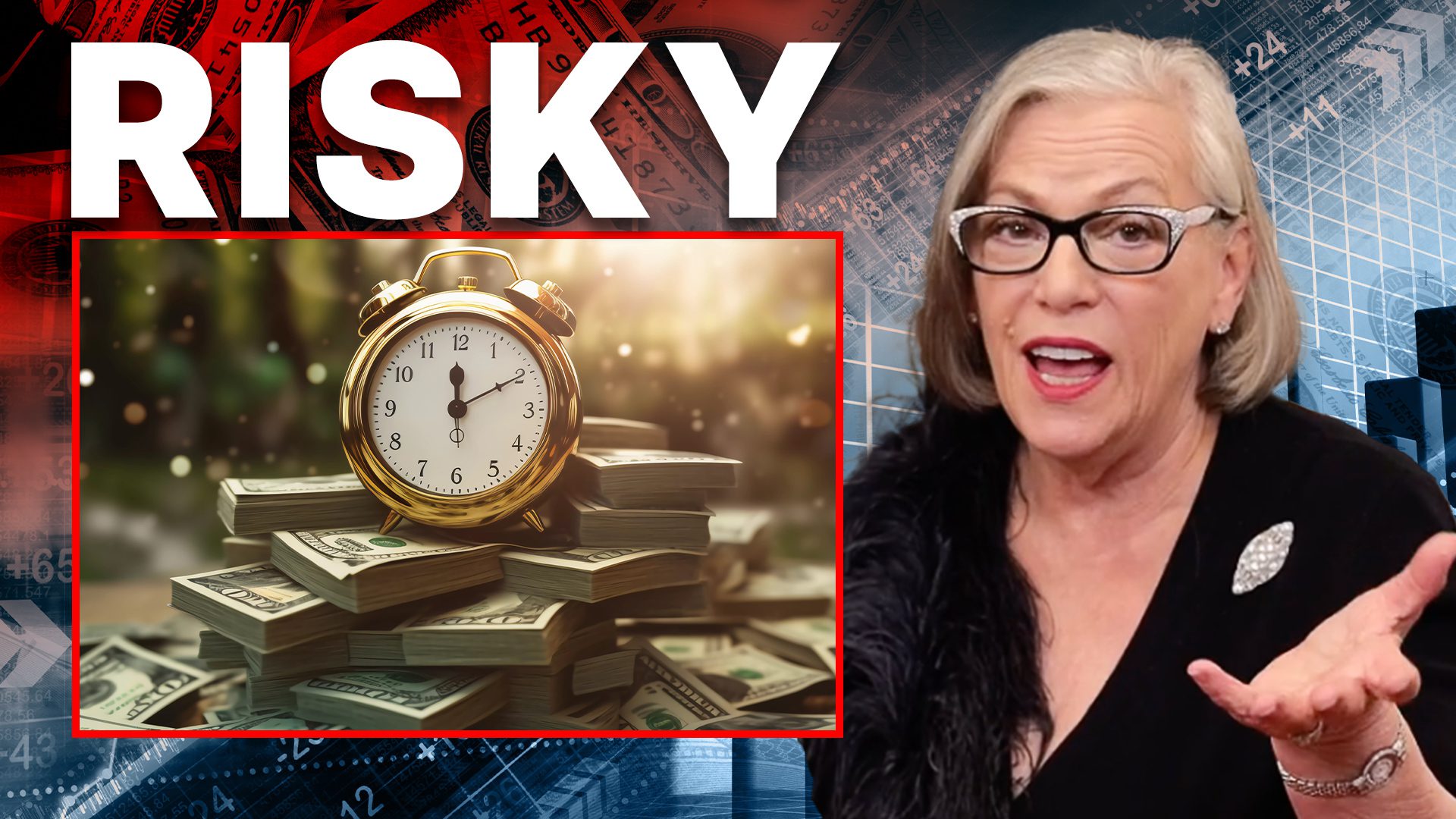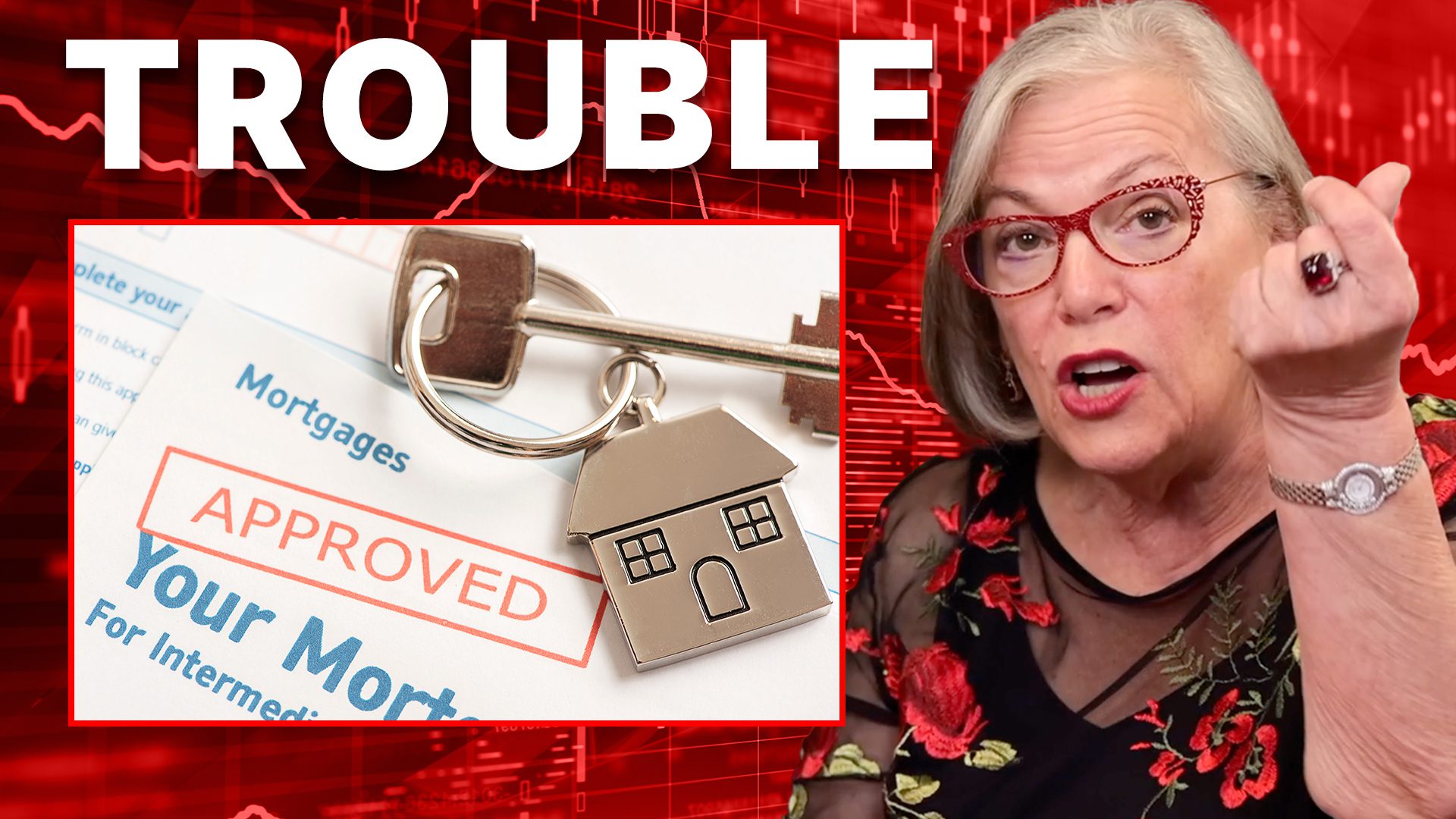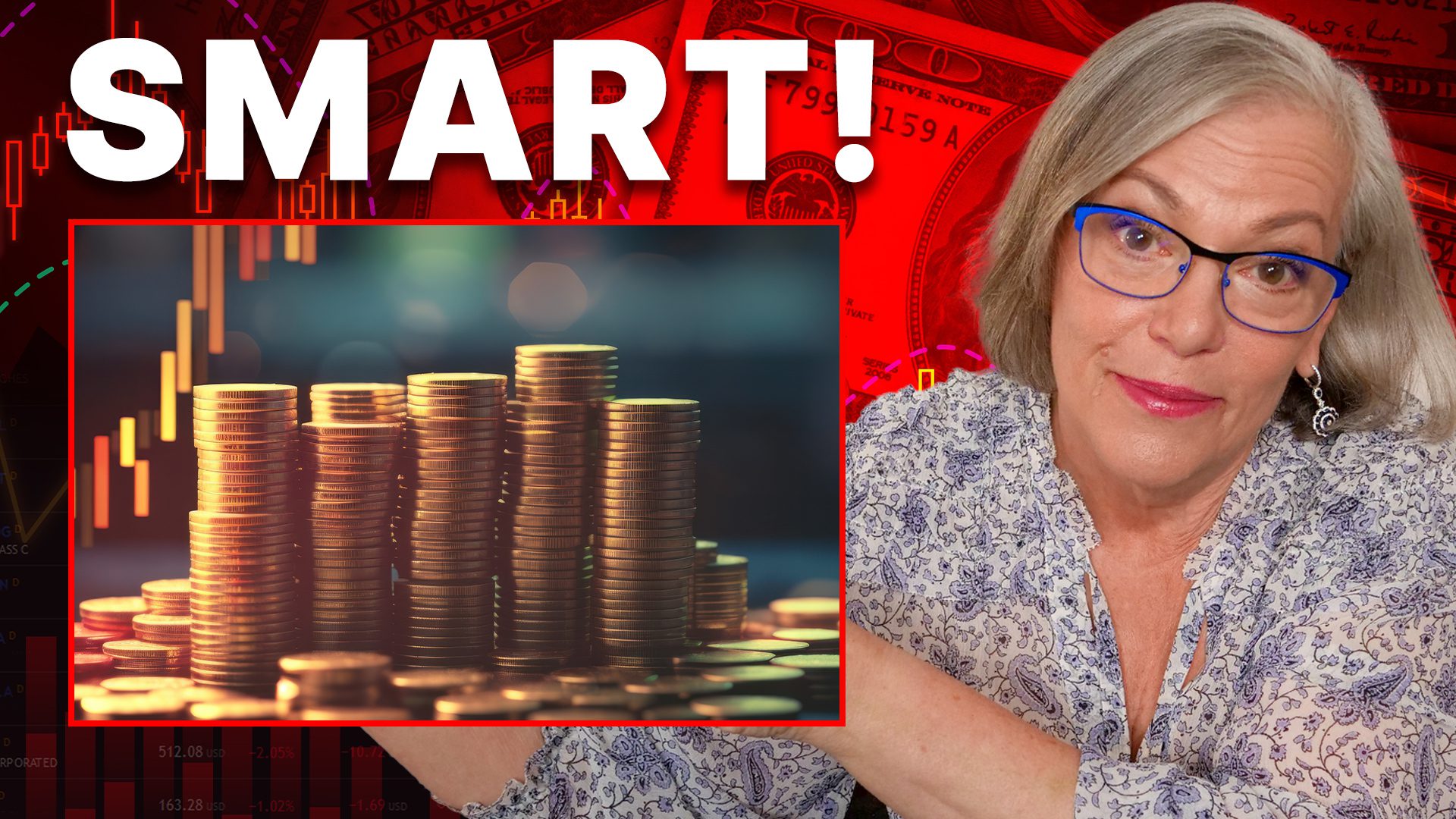ENERGY CRISIS INTERVIEW: People Don’t Realize What’s Coming
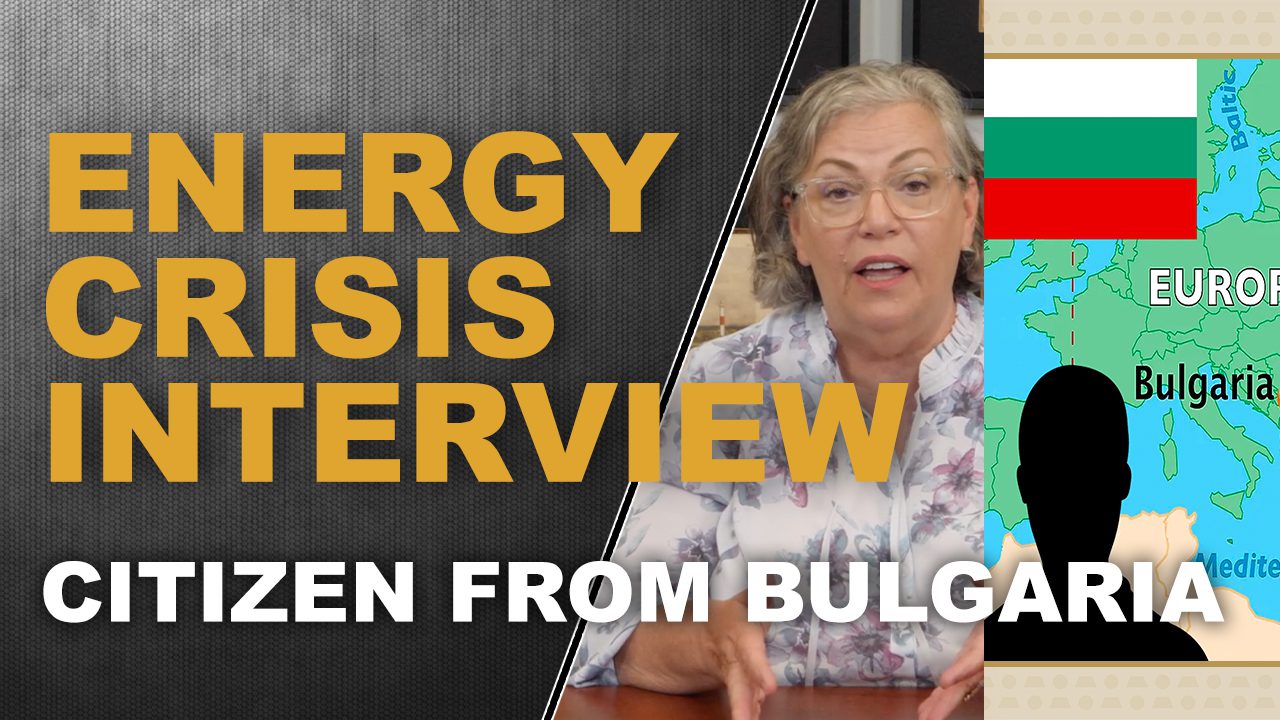
This is a “Boots on the Ground” interview with my returning guest from Bulgaria. He’s here to share his experiences of going into protection mode as fast as he can. As well as all the construction projects and “buying, buying, buying as much as we can while the prices remain somewhat stable.” We can all learn something from our returning guest!
CHAPTERS:
0:00 Introduction
3:16 Inflation in Bulgaria
9:23 Inflation Eroding Purchasing Power
12:27 Confidence of the Public
14:24 Unemployment in Bulgaria
19:05 Russia and Ukraine impact
23:10 European Union and Inflation
26:40Â Energy Crisis in Eastern Europe
37:20 “Stimulating†the Economy
39:55 The Mantra
46:50 Creating a Foundation
TRANSCRIPT FROM VIDEO:
Citizen from Bulgaria:Â
You know, we’re going into, into protection mode as fast as we can. We have construction projects and all, all this buying, buying, buying as much as we can while the prices remain somewhat stable, because if it wasn’t for him and you, I don’t know what I would be doing right nowÂ
Lynette Zang:Â
Today. I have a returning guest on our boots on the ground series, and this is Jeff from Bulgaria and he chooses to remain anonymous and we have to respect that. But for him to be willing to share his personal experiences is critical because we certainly cannot trust the traditional news sources to give us the truth. And so, without any further ado, I’d like to introduce you to a returning guest, Jeff from Bulgaria, Jeff, I’m so appreciative of you keeping in touch with us so that we can get a handle on what’s actually happening in the region. Cause you’re in Bulgaria. And so, you know, all we get is the quote unquote news, which is frequently just whitewashed. I mean, we don’t really hear what’s happening in those countries. The truth I should say of what’s happening in,Â
Citizen from Bulgaria:Â
In. Yeah, exactly.Â
Lynette Zang:Â
Yeah. And since we are so incestuously intertwined with the world, this is why you’re being here. Number one, you know, it’s fantastic that you keep in touch and let us know what’s going on, um, over there, but the energy crisis and the inflation, even though what we’ll talk about is specific to what you’re experiencing, that’s happening all over the world because we are in that transition. So whatever is happening in Bulgaria in Europe, in China is also happening here. It’s just, it’s so interesting. Like I was listening to this news report when I was coming in this morning and they were talking about the youth unemployment and how, how, how, uh, local governments and federal governments are already stretched with their balance sheet. So what can they do to stimulate when they that’s all they’ve done since, yeah, seventies D really, since we were taken off the gold standard, that’s all they’ve done. Every time their policies have sent us into recession, they’ve just stimulated and stimulated and stimulated. So wherever you are in the world, can they keep, do you think they can continue to do this stimulation and hold the confidence of the public?Â
Citizen from Bulgaria:Â
<laugh> that’s the question. <laugh> isn’t it. Yeah, yeah, yeah. Yeah.Â
Lynette Zang:Â
So tell me what your’re experiencing in Bulgaria with the energy crisis and with the inflation, if you don’t mind.Â
Citizen from Bulgaria:Â
Sure. I mean, well, I can start with some inflation data and just boots on the ground, citizen journalism type of information. Perfect. Uh, the year to date inflation, you know, July 22 back to December 21. So year to date, uh, we’re being told, uh, here in Bulgaria is 13 per uh, is 11% and the, a average annual inflation for the year is expected to be around 14%. So, which is interesting because it’s just as ridiculous as the inflation numbers that we’re getting out of America is gonna tell. Right? Mm-hmm <affirmative> yeah. So they’re Cal it’s all the same kind of funny, you know, we’re part of the European union. So we do things just like America does things. So they’re telling us that in June we saw spike to 17%, which is the highest in 24 years for this country. Uh, they’re saying that the biggest contributor to that was transportation costs, which was almost 40% increase. Um, and what, uh, the government calls household bills, which is 18 and half percent rise, um, 19 and a half report to be up, right. Uh, sorry, 18 and a half percent, 18Â
Lynette Zang:Â
And a half percent,Â
Citizen from Bulgaria:Â
Uh, what they, what they call household bills. Yeah. All lumped together. Right? So of course we can talk about energy bills separately, but, um, food they say is up 24% in June, which is an interesting number. I actually buy that number. Um, so that’s the government raised the debt ceiling.Â
Lynette Zang:Â
Of course they’re gonna raise the debt ceiling. It’s all they can do. But has that been your personal experience with the food 24% ish?Â
Citizen from Bulgaria:Â
Well, 24% in June. So I oh, just in June trying to turn back. Yeah. Just in June. So that seems about right. It seems about right. I mean, there are some items that are 40 and 60% increase and there’s some items that are 10% increase. So it sounds like it’s about right. Um, but the, I was interested in that the, the Bulgarian government, I can share some really interesting please, uh, data with you. And I wanted to get your opinion on the government here raised the debt ceiling from 7.3 billion Lev, which is our currency to 10.3 billion in June. So just like every country is raising their debt ceiling. We’re doing it too. And we have, what I’ve found is that we have the lowest level of debt as a share of GDP in the entire European union. And I’m quite honestly thrilled with this <laugh> to be calling this place home. And with the given this news, I don’t know, maybe I’m not right to be excited, but in the, in the European union, we have a, um, a debt to GDP of 22.9%. And which makes us the lowest level of debt as share our GDP in the European union. Our national debt actually shrunk by around 2%, uh, over the last year. And so I was just interested to hear what you would have to say about that. It seems that that would be a good position relatively well.Â
Lynette Zang:Â
GDP is a really interesting thing because it’s gross domestic product. So all the money that flows through the economy, but a big percentage of what we, or what the governments in the central bankers want a term as growth is actually inflation. So when you’re looking at debt to GDP, quite honestly, I think that’s kind of a bogus number since they really use inflation to, to boost the GDP. So I don’t know. What do you think about that? <laugh> I mean, with that perspective, if it’s stripped out all the inflation and it actually gave the number, I’m gonna guarantee you, it’s gonna be significantly higher anywhere in the world, it doesn’t matter where you are. Uh, it’ll be significantly higher. So the debt to GDP numbers are not something that I pay. I mean, I kind of pay attention to, but I don’t put a lot of stock in it because like every other government number it’s bogus, it’s manipulated, it’s massaged and it’s made to look a whole lot better than it really isÂ
Citizen from Bulgaria:Â
And okay. You know? Well, fair enough. I, so I should call myself a little bit. So you had asked about inflation and what was, I’m sorry, what was your other question?Â
Lynette Zang:Â
Well, you know, we’ve got the global inflation crisis and as we’ve seen in the past central bankers on a global basis, we’re doing, you know, synchronized money printing. Now they’re doing synchronized QT and we’re talking about inflation because the goal, at least in the us is to increase the unemployment rate so that the current leverage that employees have to employers by demanding more money. Okay. What, what our central bank is talking about. And I think this is probably pretty typical is that, um, price stability is about employees not asking for more money. So if they could keep the inflation level, uh, hap I mean, it happens no matter what, but if they could keep it at that 2% level, then employees don’t ask for more money. Once it is obvious that inflation is, you know, eroding the purchasing power rapidly. Like it is right now. Well, see that the central bankers don’t like that, but that of course is what enables that income and wealth and equality. So from your perspective where you are, what are you seeingÂ
Citizen from Bulgaria:Â
In terms of the inflation mm-hmm <affirmative> and the cost is good size the numbers. Yeah. Well, mm-hmm <affirmative> yeah. So the, uh, the drop in oil price did result just as in America, here in Eastern Europe, we are seeing a similar drop in fuel costs. And I should say gasoline costs mm-hmm <affirmative>, um, of course the natural gas and electricity and all those type of things are, that’s a whole different conversation, but we are seeing a Dr. Uh, the food is kind of leveling off. Uh, we’re not seeing, you know, double digit increases as we were in the springtime and the gas over the last, uh, probably two months ago stopped climbing <laugh> mm-hmm <affirmative>. And, uh, it was every week, every week, every week, it was climbing just like in the states. So we’re seeing a similar, slight drop, you know, um, 20 cent drop. I can also report that, you know, just most of the European union has, um, gasoline subsidies. It seems like I don’t know what you’re hearing, but here we have a 20, uh, we don’t have sense. We have St Tinki. So it’s a 25 St Tinki subsidies. So when you go fill up your tank, you’re qualified. If you have your little registration document to have a, um, a sub subsidized gas. So we are doing subsidized gas here, uh, gasoline that might be of interest to you. SoÂ
Lynette Zang:Â
Does that we’re seeing impact the debt, right? Because who’s gotta pay for the subsidies.Â
Citizen from Bulgaria:Â
Of course, certainly. Yeah. It’s all government subsidized. Right. So it’s, uh, and how doesÂ
Lynette Zang:Â
The governmentÂ
Citizen from Bulgaria:Â
Generat it’s? Well, that’s the, that’s the issue here is that this nation doesn’t generate a lot of, you know, tax income. You know, we are one of those Southern European countries that is a burden on the more prosperous countries. Uh, you know, I’m not an expert in this, but that much I understand. So we really do, um, this, you know, this is European union money. Uh, that’s essentially where that’s, where it’s going. You know, mm-hmm, <affirmative>, this is coming from, so, you know, we’re glad to take it, but it’s not a good sign in my opinion. So does that answer your question? I mean, we we’re, we’re seeing a leveling off essentially, and we’re seeing some more play money. They’re handing out some play money. We’re still seeing, uh, some food rationing. We’re still seeing, uh, cooking oil, that kind of thing. Okay.Â
Lynette Zang:Â
Let’s kind of back up here for a second, because this is what your norm is, but I don’t think that that’s, you know, I mean, that’s not our norm here. So when you’re talking about mm-hmm, <affirmative>, um, the subsidies coming from the European union, and you’re talking about food prices leveling off, um, how has that impacted the psyche, the confidence of the public, because that’s, what’s holding this whole game together. This is the con game clearly, and it requires confidence.Â
Citizen from Bulgaria:Â
Yeah. It wasn’t things have changed in the hot summer. We’ve had a, depending on what part of the country you’re in here, if you’re in the mountain, it’s beautiful and cool <laugh>. And if you’re in the valley, like we are, it’s quite a, you know, it’s summertime, people are going to the black sea, they’re vacationing. We do have some tourists coming into the country, uh, Greece as well, right? So there are neighbors, but it’s really kind of a typical summertime mentality as opposed to where we were in the spring, which was what’s going on. Everything is going up and people were taking large plastic containers, filling them up with diesel and with gasoline and people were getting trampled in the stores grabbing cooking oil. So it’s a completely friend situation here at the moment. And I would gather that part of it is, you know, we’ve just seen a slowdown in the spiking prices and we’ve seen, uh, subsidies, I suppose, are kicking in. People feel a little bit more comfortable, but, uh, I, I was able to gather and send over a report to you guys on some interesting attitudinal data, uh, in terms of government trust. Uh, so the government, the trust in the government here is continues below, but it is day to day. The attitude of the people is not a panicked attitude as it was in the springtime mm-hmm <affirmative>, if that’s what you’re,Â
Lynette Zang:Â
That is exactly. Yes. That is exactly what I’m asking, because we’re finding that here. I’m finding that here as well. And do you think that the increase in interest rates that’s happening globally is having that impact, like what’s happening with unemployment in Bulgaria?Â
Citizen from Bulgaria:Â
So unemployment, we, uh, we rank fifth in the most COVID related unemployment. Uh, they, so they break it into kind of COVID related unemployment, uh, and Greece, sadly, our neighbor to the south leads, um, is even, um, is number one in unemployment, but our unemployment here again, are you ready for the funny number Lynette?Â
Lynette Zang:Â
I am.Â
Citizen from Bulgaria:Â
<laugh> our unemployment here is four point 0.2%. So if you choose to believe their funny number, and I’m actually not very familiar with, uh, uh, how they calculate, I know how America calculates the number and it’s, it gets funnier as time goes on. They keep making changes, right? Yeah. So I, I don’t know, but I can tell you that it’s officially, it’s 4%, the average monthly salary in the country recently went up. So this, you might have been interesting exceed, uh, 1000 Lev per month and everything here is per month. That’s how Europeans express it, at least in Eastern Europe. So it’s about $520 per month average across the entire country. So the big cities, the small city and all that. So that’s actually an increase, uh, the average monthly gross salary, um, in the LA second quarter, I think was about, uh, $900. So that’s up, um, that’s about 7.8% compared to the first quarter. Um, so there’re seeing that, you know, there’s been increase, uh, we’re seeing wage increases in, uh, education leads the way in wage increases. <laugh>Â
Lynette Zang:Â
Honestly, it should, since that’s the hope, but I mean,Â
Citizen from Bulgaria:Â
Absolutely who would’ve ever guessed. So you’re Europe, Eastern Europe is very different. I mean, we are, this is very much more of a, like, like, like, um, I should say Southern Europe, uh, in, in Spain and it’s a, it’s a socialist, um, you know, it’s a Republic, but it’s very social driven. So it’s education, agriculture and mining we’re leading the way in terms of pay increases. Uh, unfortunately just like everywhere, um, human health and social work. So a decrease in their wage, uh, sadly. Oh, but that’sÂ
Lynette Zang:Â
Interesting. Are, are you happy?Â
Citizen from Bulgaria:Â
So yeah, I,Â
Lynette Zang:Â
I, is your area experiencing the challenge with hiring that’s going on because this is a global issue too. Uh, are you experiencing that in Bulgaria? Do you think?Â
Citizen from Bulgaria:Â
Um, oh, are you talking about a wageÂ
Lynette Zang:Â
Shortage to work or, um, employee shortage is what I’m talking about because I know.Â
Citizen from Bulgaria:Â
Yeah, not much. Not, not so people wanna work the challenges that are. Yeah. Um, it’s, I think I mentioned this to you. Last time we spoke, what I see is America is now has become over the last year. Maybe too has become very much like it is here. And always has been since I’ve been coming here for 20 years, mm-hmm, <affirmative>, uh, I’ve lived here for maybe eight years now, seven or eight years, but I’ve been coming here for 20 years and nobody here really wants to work. Uh, honestly now in the big city, there’s two large cities, maybe, I guess you could say there’s four cities, which are in, you know, uh, white collar and industrial that people, you know, they work, but generally speaking, um, this, uh, very European, you, you, can you think of the French maybe as being, uh, very easy going, if you go to Italy, they’re very easy going. Mm-hmm <affirmative> right. It’s a short work day. Um, people don’t work themselves to death, uh, and they, they really don’t care to work. Um, so I think that’s what America is experiencing. And last time we spoke, I was just saying how everything I was hearing about America is interesting because that’s the way it’s been here for a long time since I’ve been coming here. So no, the answer would be that, um, we’re not experiencing, uh, you know, people, labor, shortages, I suppose you could say, we’re not experiencing that like America is.Â
Lynette Zang:Â
Well, I, I’m also really curious because of your location on the black sea and what’s going on between Russia and Ukraine. How has that impacted your area? I mean, aside from theÂ
Citizen from Bulgaria:Â
Well you’llÂ
Lynette Zang:Â
Energy shortage, although you’ll see,Â
Citizen from Bulgaria:Â
Uh,Â
Lynette Zang:Â
Just let me ask that question and you tell us.Â
Citizen from Bulgaria:Â
Yeah, so we’re seeing refugees, we see a lot of, uh, children and older folks, uh, grandmothers with children. That’s mainly what you’ll see when I go out to the grocery store. Um, and they’re using, uh, they have some sort of cards and there’s, I guess, many different ways that they’re receiving subsidies. There’s been some internal, um, strife over, you know, where to put these people for, how long would you put them in hotels? And that, that kind of thing. So, yeah, the refugees are here and there’s a lot of concern over, well, how long will they be here? Where should they be while they’re here and keeping that boat floating right. Of, um, who’s gonna pay the bill for that. And that, again, that’s largely being funded publicly, but also, uh, a plane just landed yesterday. Actually it was a private foundation. I can’t remember the name of it, but a full cargo plane full of food and cl arrived for the refugees in, uh, landed in the capital. So I’m sure that’ll be making its way onto trucks and spreading out. But yeah, so the company has, the country has opened up, um, you know, it’s hotels, uh, people have taken refugees into their own homes. It’s been a pretty, not very chaotic. It’s been quite, uh, quite calm, but being situated on the black sea, uh, we did have some munitions wash up on, on the seaside a few times, but it hasn’t, uh, we’re not quite as close as say Romania would be to the action.Â
Lynette Zang:Â
Right. Okay. So then even when Ukraine sent that ship out with food for a global food shortage, um, that had no impact on you in Bulgaria or, or did it,Â
Citizen from Bulgaria:Â
Uh, no. I mean, I’m not sure what kind of impact you would think that it would have. What are you suggesting? Um,Â
Lynette Zang:Â
Well, you know, basically it could, that have helped, I don’t know, reduce some of the food costs, it’s the wheat that they sent down.Â
Citizen from Bulgaria:Â
Uh, no, I think, I think most of that, from what I understand, most of that grain was bound for Africa and, and other places. That’s what I understood, but there’s no, I dunno if I all the facts then,Â
Lynette Zang:Â
Well, I think it’s interesting because it’s the summertime. And as you indicated earlier, people are going to the beach and they’re just, they’re having their summer kind of vacation, and this is all happening around the black sea, but it doesn’t seem to be impacting what past Ukraine or past Ukraine in Romania.Â
Citizen from Bulgaria:Â
Uh, in what way are you suggesting that it would impact here? I mean, there there’s just because of the war here spending money. Mm-hmm <affirmative>,Â
Lynette Zang:Â
Mm-hmm <affirmative> I mean, because of the war. And so none of that is really getting as far as Bulgaria,Â
Citizen from Bulgaria:Â
Uh,Â
Lynette Zang:Â
OtherÂ
Citizen from Bulgaria:Â
Than in terms of there being strife or concern or right. Violence or anything like that. No, no. And it’s all, it’s all older women and children who seem to be fleeing and who have made their way here.Â
Lynette Zang:Â
Mm-hmm <affirmative> yeah, it usually is the older people and the younger people that have the great, I mean, they’re the most vulnerable, the very young and the very old, so the able bodied are staying to fight. And then it’s the very old and the very young that are making that. Well, do you think I’m kind of shifting gears here for a second, but do you think that the European union can remain intact with all of the inflation pressures, interest rate pressures? I mean, Hey, you know, Christine Lagar that first shocking awe took a, took you from negative rates to zero in the European union. Has that had an impact on you or what do youÂ
Citizen from Bulgaria:Â
Think about that? Sure. That’s had a direct, a absolutely a direct impact. We’re paying the bank to store our money in it. <laugh> so that’s the situation, you know, people scream and yell in America when the gas goes up to $8 a gallon. Well, when I came here, you know, 15 years ago we were paying $8 a gallon for gas. So now we’re paying $13 a gallon for gas. So, um, yeah, but the, and, and the negative rates. Absolutely. So you, you know, most bank accounts here, depending on how much you put in and for how long and all that kind of thing. Yeah. You pay the bank, you pay the bank in order to, they just they’re removing fees. Right. And so in America it’s kind of similar, but there are ways to, you know, to avoid the fees, but here there’s, no, there are very few ways to avoid the fees. So yeah, that’s had, uh, a direct impact. Uh, but in terms of the, the,Â
Lynette Zang:Â
I I’m sorry, while I was gonna say, but when, when, when Christine Lagar increased the rate from a negative rate to neutral to zero, I don’t, it’s not neutral, but to zero, did that have an impact on, has the anything changed in the banking sector when that happened? You’re still paying the same fees.Â
Citizen from Bulgaria:Â
Um, most of the fees have increased, but oh, um, yeah. I mean, there’s all different kinds of ways that, you know, they’re increasing and, uh, but the, the average, you know, and again, I mentioned this last time we spoke the average Bulgarian, doesn’t keep a lot of money in the bank. Mm-hmm <affirmative>, I mean, the average American doesn’t keep a lot of money in the bank. We tend to spend it mm-hmm <affirmative> so, you know, folks here don’t have the, uh, I mean, the, the attitude about banks here, I think is just the way it was, you know, a year ago, five years ago. I don’t think anybody here seems to be, and again, I’m, I’m a next Patriot, right? So I’m not interacting terribly much with, uh, as many Bulgarian as a Bulgarian person would mm-hmm <affirmative> but the, uh, you know, perhaps the average Greek citizen would be more in tune simply because they went through a crisis. Uh, Bulgarian. It’s been a while, since there has been a banking crisis, it’s been a few decades. So, uh, people here don’t seem, they certainly will remember that, but they don’t seem concerned over what the European central bank is doing lately. Mm-hmm <affirmative> if that’s,Â
Lynette Zang:Â
Well,Â
Citizen from Bulgaria:Â
I think that, I think that answers your question. They don’t seem concerned about it.Â
Lynette Zang:Â
Right. And, you know, I mean, I, I think most people don’t pay attention to what’s happening. They just go about and live their lives. And when energy prices go up or food prices go up, you know, they may be upset about it. But you mentioned wage increases are the wage increases, uh, keeping pace with the cost of living increases?Â
Citizen from Bulgaria:Â
Well, I mean, that’s getting into, I guess the answer to that question is no, and that gets us to energy. So, um, you know, the situation with energy, poverty is pretty serious in Eastern Europe, as it is everywhere. Uh, so the inability to pay utility bills in the European union has been steadily rising. Mm-hmm <affirmative> right now, it’s at about 16% of the population. Um, and this is a number from a report that, uh, can state the name of the report it’s called the Euro found living, working, and E survey. Um, so if you look up Euro fund, I’m sorry, Euro found you’ll, you’ll find this report and I’ve sent it over to you, right. Um, when that, but anyway, this is where this data is from. So about 16% of European union households are saying that, you know, they don’t have the ability to pay their utility bills they’re in arrears. So, uh, among households, here’s the shocking part, the, the scary part among households that are already in arrears, they’re late on their bills, 74% express concern that they’re not gonna be able to pay their bill in the next three months. Oh, so those with social housing or renting privately, in other words, the relatively poor are falling behind on their bills. However, those with and without mortgages are now also falling behind on their utility bills and even at a faster rate over in, in 2022, again, according to this, this survey,Â
Lynette Zang:Â
Um, did theyÂ
Citizen from Bulgaria:Â
Cut them off? Countries are,Â
Lynette Zang:Â
Do they, when they, I mean, in the us, if you don’t pay your utility bills, they, you can, you can juggle it around a little bit, I think, but then they cut off your utilities. Do they do that there?Â
Citizen from Bulgaria:Â
I wish I had an answer to that question, Lynette. I don’t have a good answer to that question. And as your boots on the ground, dude, I wish I did, because in, I remember in Chicago <laugh> they didn’t tolerate that. They just cut my off. <laugh> exactly. Um, yeah, three weeks at the most, they just cut you off. It seems to me that there is lenient here, but we haven’t seemed to, I, I don’t know. I, I want the answer to that question. So I promise to try to get a, a feel for that for you. Excellent. Um, so it’s a staggering 50, 55, 0% in Greece of people are behind on their utility bills. We here in Bulgaria are at 34%. So yeah. What happens when you don’t make your, your payment?Â
Lynette Zang:Â
Right. And we’re going into winter, we’re finishing up the summer.Â
Citizen from Bulgaria:Â
Winter is the concern. Yeah.Â
Lynette Zang:Â
We’re, we’re going into winter. So, I mean, what do you think are the most important things that you wanna share with us on your, from your experience living there? Cause you’ve had a lot of concerns and I wanna make sure that you get a chance toÂ
Citizen from Bulgaria:Â
Talk energy, energy. You know, the, the, the energy is the biggest concern as we’re staring at, you know, we’re in Southern Europe, but when we look at Germany and you look at the Netherlands and, you know, mm-hmm, <affirmative>, uh, we haven’t talked at all about, um, the Netherlands and the farmers, um, hearing less and less about the, the farmers’ protests and the Netherlands, but just, you know, central Europe and, and Northern Europe, this is a really serious situation. Um, because I just heard that Nord stream, uh, the Bulgarian government says that Nord stream, uh, in other words, Russian imports imports, right. We’ll range between zero and imports of, um, uh, energy. What we receive in natural gas will be 20% of the agreed quantities for Germany.Â
Lynette Zang:Â
Yes. Oh. So, so your 20% of what’s agreed for Germany and Germany is already only receiving 20% of what they’re used to it’s.Â
Citizen from Bulgaria:Â
This is the scariest thing. Yeah. So, I mean, I don’t want, I don’t want, you said what’s the most important thing to communicate <laugh>, uh, that I’m scared. Um, sorry to say that the, the energy situation has me very concerned. So what we’re doing is literally next week, I finally pulled the trigger, my wife and I finally pulled the trigger on solar. Oh yeah. We’re going completely off grid. Um, I see no reason to be, um, if you go with an on grid system or, or a shared system when they, when their system goes down. So does the, um, your system, if you exactly do a shared grid in, in most situations, so I’ve got no use for that. <laugh> right. I need my power. Um, especially when I’m producing my own power. So we’re going, you know, we’re going into, into protection mode as fast as we can.Â
Citizen from Bulgaria:Â
We’re we’re, um, we have construction projects of various sorts for our animals. And, uh, uh, we have another, uh, little home that we’re finishing, um, construction on and all, all this buying, buying, buying as much as we can while the prices remain somewhat stable, because the fear is that in the fall between the food and the energy that we’re gonna see a real, I mean, I’m talk, I’m tracking all the same people. You are. Thank God for Chris. Martin’s, uh, Dr. Chris Martinson, Absolut, who’s come on with you. If it wasn’t for him and you, I don’t know what I would be doing right now, but I would I’m my, my family. And I would be in a much different, probably more comfortable position <laugh>, but, uh, uh, a very ignorant position. And I don’t wanna be in that position. So we’re scrambling as most people should be. I’ve come to learn that I’m a prepper. Um,Â
Lynette Zang:Â
I know isn’t that funny? I never thought of myself that way either, but there you go.Â
Citizen from Bulgaria:Â
So yeah, you’ve been doing it for what? Over 10 years. Yeah. So I bow to you, but, um, yeah,Â
Lynette Zang:Â
Lemme tell you, I’m very grateful that I started and believed my work. Right.Â
Citizen from Bulgaria:Â
So, absolutely. I mean, it’s, you’ve got a head start. It’s wonderful. And I know you’ve been, I had kind of an emotional day today. It’s the end of the day here and it’s, uh, <laugh>. I was thinking about what, how I’m gonna greet you. And, and you’re probably gonna say, Hey, how are you feeling Jeff? And honestly stressed. I just want the, the other shoe to fall and I’m looking forward to, whatever’s gonna happen to happen. And I know about two weeks ago, I could tell a couple of videos you put out, it was, you were stressed because there’s so much happening all at the same time. And now the last two weeks has been kind of quiet, um, ever since Taiwan <laugh>,Â
Lynette Zang:Â
Which is not over, I mean,Â
Citizen from Bulgaria:Â
Few days, you know, China has thoughÂ
Lynette Zang:Â
Still doing exercises around the seas of Taiwan, uh, the sea of Taiwan. So, you know,Â
Citizen from Bulgaria:Â
The, the truth is that, like you said, we don’t know unless we can, um, stay together and I’ll try to do my best to bring boots on the ground information to you, um, on, but, you know, so we can all understand a little bit more about what’s happening, but in Europe, it’s, for me, it’s all about energy. And as Chris Martinson tells us, everything is energy. The economy is energy and without energy. Yep. Um, you can’t do anything. And as we look into the winter, no matter how warm or cold it’s, it’s gonna be cold. And that’s our biggest concern is, uh, we’ve also installed a, um, wood burning furnace. So we can have multiple forms of energy mm-hmm <affirmative> as needed and, you know, greenhouses and <laugh>, um, you know, it’s gonna be interesting in the fall when it comes to the, you know, the crops, uh, here in Europe, we’re looking at, uh, here in this country, the crops are smaller.Â
Citizen from Bulgaria:Â
We’re seeing it already. We’re seeing a lot of things come in, but at the same time, we’re seeing Turkey and Greece flooding the Bulgarian and Romanian markets with a lot of their merchandise that they can’t sell. Mm-hmm <affirmative>, mm-hmm <affirmative> so I’m, I’m not, and again, I’m not an expert on that, but I can tell you that, uh, there’s strange things happening, like, like other countries, uh, piling all their fruits and vegetables into this country, wiping out the, the farmers here. There’s just no demand for their products. People are leaving things in the fields, the watermelons, the cherries, oh God, the nuts things are, yeah, it’s real strange. Things are happening. So as different countries, Jostle, and you had asked, you know, what’s gonna happen with the European union. Yeah. It really is a situation. It’s a situation where, you know, there are the, um, Southern, you know, states are just a burden on these other economies. And, you know, as you’ve been reporting Germany is like, we’re gonna suck it up. We’re gonna, we’re gonna take care of our other European union members. We’re gonna, in terms of the banking system.Â
Lynette Zang:Â
Well, in terms yeah. And for a momentÂ
Citizen from Bulgaria:Â
ThatÂ
Lynette Zang:Â
<laugh>, but you know, things only get stretched so far. So you’re right. When you’re, when, when there’s this much chaos going on, it’s because we are in transition. And, you know, one of the things that, that Dr. Chris Martinson and I absolutely agree on is neither one of us is sure if this next crisis coming, uh, it, uh, it almost seems like we’re being pushed into a crisis, right? And that crisis, like with, with China and with this, it’s just happening all over the world. There’s crisis, everywhere you look or simmering crisis simmering, loss of confidence, um, and a rise rebellion. Even in China, we’re seeing this, which is kind of mind blowing because that is the most controlled population on the planet. And it’s been a big test to see how far you can push people. But, uh, when we there’s, there’s virtual, I don’t care what currency you’re looking at. There’s virtually no purchasing power left. So we, and, and we’ve got the world that’s basically anchored near zero. So to really be able to stimulate the economy and lower interest rates when you are at zero, then you’re going into negative rates. So even though we saw Christine, Lagar go to zero, the average drop is five and half to five and three quarters percent <laugh>. So where, where they’re out of ammunition. And I, don’t notÂ
Citizen from Bulgaria:Â
In terms of, in terms of stimulating, what are you going to stimulate? So again, some more data for you. Uh, there’s an increasing number of people in the European union that are having a great difficulty or great either great difficulty or difficulty paying their bills. 53% of the European union citizens in springtime said they had difficulty making ends meet. Yeah, that’s, that’s, um, that’s up from 45% from 2021. So what are you gonna stimulateÂ
Lynette Zang:Â
You, you know, universal, basic income. I’m kind of, I mean, we have seen a bit of that coming out, but I think we’re gonna see a whole lot more because how are people gonna pay their bills if they’re already at 55%? And do you think that the central banks, or let’s just talk about the European union, do you think the central banks have inflation under control as we’re seeing the costs either level out or in energy’s cost in energy’s case or gas case? Anyway, oil drop, you think the central banks have this under control? Does itÂ
Citizen from Bulgaria:Â
Feel like it? No. They’re tell no, they’re not. They don’t. And they’re telling us so I can tell you what they reported in the, what Bulgaria’s government reported. I, in the second quarter, eggs are up 56%. Grains are up 55% veggies, up 32% livestock, up 26%. These are the, these are the government’s numbers. And I can tell you that, you know, in reality, some of those numbers are accurate. Some of them are probably higher, but we’re seeing, you know, 45% increase in electricity, 150, 3% increase in mineral fertilizers, 44% increase increase in, in insecticides. When you, you know, to keep the insects off, off the, the veggies, um, 32% increase in animal feed. These are the government’s numbers. So either you can believe those numbers or those numbers, I think in many cases are higher,Â
Lynette Zang:Â
Right? In reality, they’re higher, not the government numbers being higher, cuz they always want it to look better. And so it sounds like you’re kind of following the mantra, food, water, energy, security, barter ability, wealth preservation, and community. Yes,Â
Citizen from Bulgaria:Â
Absolutely. Uh, I’m an ITM customer. Awesome. So, uh, we are following the mantra. Absolutely. And in protection mode, it’s not, I don’t know. Sometimes I wake up and I’m excited by it all. Sometimes I wake up and I’m not sure what’s going on. Um, well it’s kind of, and I feel, you know, mostly it is because I, I just am concerned about, you know, the younger generation. I have a son who’s 16 years old and what it’s gonna look like with programmable money. It’s just, um, you know, and I’m trying to rally myself and, you know, with you, with Chris Martinson, trying to keep, you know, George Gammon, all these folks who are, you know, saying worry it’s time to, yeah, we’ve got to resist this.Â
Lynette Zang:Â
Yeah. So,Â
Citizen from Bulgaria:Â
So, and then, you know, you’ve got your own fam my own family members who are all like, come on, your friends are like, come on. What are you gonna do about it? You know, that kind of, so it’s really kind of, um, but no, you were, you were asking what do do, do, do I believe that the European central bank has it under control? No. Um, Astair McCloud. I don’t know if you listen to him, I’m pretty sure you do. Mm-hmm <affirmative>, he’s another guy who can explain to you. Yeah. You know, he’s another one who is a, a, a Ray of sunshine, but what he, what he is able to deliver to us is the truth. And it’s, you know, the truth is that the European central bank is on the, on the brink. So that’s what I keep trying to explain to my friends. You know, my wife understands and we’re, we’re taking whatever steps we need to, um, get everything in place that we need to get in place so that when things start falling apart, even faster than they are already, that we’re able to, to cope with that.Â
Lynette Zang:Â
That’s good. I wanted to give you a couple little tips and you might already be doing them because we mentioned fertilizer. And you also mentioned pesticides. So do you have a pond that’s stocked with fish?Â
Citizen from Bulgaria:Â
Um, no, but I just bought a, uh, kind of a flimsy little fishing boat and uh, so we’ll be doing some fishing. So we’ve got great resources for that. And last time we spoke, we talked about, uh, um, composting. I don’t know if you remember that, but we’re, we’re big into that as well. We don’t, we, we don’t worry about fertilizers here, but I’m talking about the rest of the country in terms of the economy.Â
Lynette Zang:Â
Well, because the, uh, I was gonna say large 300 gallon IBC tanks where you can throw some tilapia in, so you don’t actually even have to get in your boat. It creates the fertilizer, but then if you mix that fish water with your compost and you spray it on your plants, that takes care of the pesticides. Okay.Â
Citizen from Bulgaria:Â
Okay. Just now we’re going beyond silver and gold.Â
Lynette Zang:Â
<laugh> yes, we are. But you know, it’s so interesting to be because everybody always wants to divide those two things, but it’s because of what’s happening in the economy, that it’s critical that you have the rest of those things in place. You know, I’m not a gardener, I’m not a farmer, but I am, as you know, as a student of the economy and the student of currency life cycles, I know how deeply I delve into things. And so it is, to me, that’s all one big thing. It’s, it’s not really separate. You’ve gotta have sound money. So your wealth preservation, and that also puts you in position to take advantage of opportunities. But while you’re waiting for those opportunities, you gotta have food, water, energy, security, barter ability, community, and shelter. So you have to have every single part of that in order to survive. And dare, I even say it thrive through this doesn’t matter where you are in the world, but we we’ve talked about a lot of things and I really appreciate you coming on and keeping us informed on boots in the ground. What do you wanna say to everybody? Is there anything that weÂ
Citizen from Bulgaria:Â
Keep fighting a good fight and, you know, keep your chin up, stay positive. And I think it was George Gamon, who was talking a lot about how, you know, that to fight, to, to try to convince people, your loved ones to take action can be very painful and that we should resist the urge to try to, you know, um, push people in any one direction, you know, and that can be really difficult. But, um, yeah, I just appreciate the opportunity to come on and share what I can share from over here on the, uh, other side of the ocean. And thank you for encouraging the ponds. I, I know that my wife has, you know, we’ve watched your beyond silver and gold. We’ve watched all the videos and we’ve seen your ponds and they’re beautiful. And my wife would be totally sold on that. We just have to figure out where, soÂ
Lynette Zang:Â
Too true. But even I appreciate you can, you’re gonna be seeing, um, because I, I just bought three more, uh, or four. No, cuz I have one up there, three more. I B C tanks, four inside of the grow areas. So that it makes it really, I mean, it’s, it’s cheap. It’s easy. I think we paid don’t hold me to this cuz I didn’t actually buy them, but I’m pretty sure they were like 75 bucks a piece. So that’s super cheap. You have an instant pond, you have instant fish that you can fish from. You have instant water for fertilizer. You know, you can even do a little aquaponic at the top, but you’ll see us putting all of that together. They just came in the other day.Â
Citizen from Bulgaria:Â
I’m excited to hear about that, but also the, uh, the dome. So <laugh> good luck with that.Â
Lynette Zang:Â
Thank you. I mean, you have no idea, but you know, uh, one of the things that I like to do is show people the good and the bad, not just when everything is finished and looks good and we’ve worked through all the problems, but all the problems that can arise along the way so that everyone can see, you know, we’re all in the same boat and you have to just start somewhere. And I like, I like having sound money as a foundation because if you have sound money, no matter what is happening. So you have your physical gold, physical silver in your possession, no matter what is happening out there, you have universal money that they can’t take away from you via inflation. They can take it away from you other ways, but they can’t take it away from you via inflation. And you know, the other, the other thing that I think is really important as we’re talking so much about security, right?Â
Lynette Zang:Â
There’s food security, there’s energy, security, etcetera. We need to all of us as a community, whether you’re in Bulgaria or you’re in Arizona or wherever it is that you are it, we don’t need everybody to get it. We only need a vocal few percent, maybe 3%, 5% to actually understand what’s happening. And the thing that we all need to realize is that this is really a consumer driven world and we vote with our purses. So if you keep your money inside of the Fiat money system and stocks and Bo and all that garbage that they’ve created to really Rob you without you realizing and getting you to volunteer it, then that’s a vote when you take your Fiat money and convert it into gold and silver, and you’re holding it in your possession, not wall street products, but the real thing, that’s a vote too. That’s my vote along with making sure that we’ve got food, water, energy, security, barter ability, wealth preservation, community, and shelter community is arguably the most important piece, cuz we all have to come together to fight this. So thank you so much.Â
Citizen from Bulgaria:Â
Agreed. Um, each, each piece is, uh, critically important and sometimes, you know, we have strength in some areas and weaknesses in other areas. And what we’re trying to do is trying to, uh, I think I mentioned you before. One of the areas that we, we have a strength in is a natural resource of water. This country has, this region has amazing water, but you know, there’s other challenges, um, particularly energy. So, uh, we’re always trying to improve. And so that we have a balance of, uh, of the, of the mantra and the shield.Â
Lynette Zang:Â
That’s perfect. Jeff, thank you so much for, for keeping us in the loop and coming on today and you know, last time you were on was in March and boy is a lot of things changed since March. So we’ll see in a few months again and let’s see what changes between now and thenÂ
Citizen from Bulgaria:Â
Sounds good. Lynette,Â
Lynette Zang:Â
Would you like the best to tell anybody the next time do any self-promotion here?Â
Citizen from Bulgaria:Â
Oh no, not all. <laugh> I just appreciate the opportunity to, uh, to share, to share with you. Yeah, no, I, I, you know, we, we’re just blessed to be able to share what we’re, what we’re experiencing here. And some other data that, uh, comes out of this report that I think is a pretty, I would say trustworthy report. I don’t, I don’t put much faith in surveys and reports and analysis and that kind of stuff, but this one seems to have some very interesting information that you and, um, your advisors and, uh, everybody in the community would be able to benefit from. Maybe we can put the PDF, uh, link for that. It’s a free report down in the, in, in the, on YouTube, uh, info section down thereÂ
Lynette Zang:Â
A hundred percent. Yes, we will definitely do that. And uh, we will see you the next time in just a few months and good luck if you need anything else. I know you’re always talking to us so we will be in touch. I know. And for everybody watching, I hope you got as much out of this conversation as I did until next time please be safe out there. Bye-bye.Â
SOURCES:
Eurofound Report: https://www.eurofound.europa.eu/sites/default/files/ef_publication/field_ef_document/ef22042en.pdf
